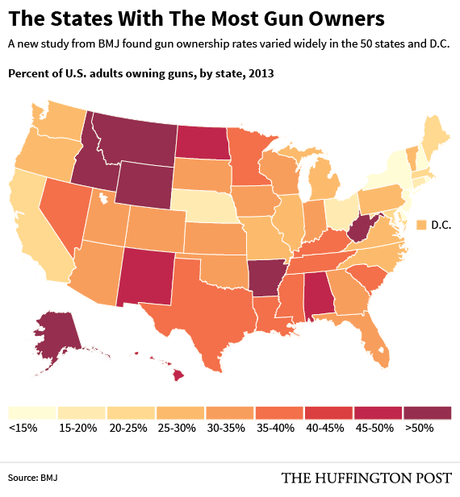
Huffington Post
Kalesan's study defined “social gun culture” as a phenomenon in which friends or family would think less of you if you didn’t own a gun, and if your social life with friends and family involved guns. Any survey participant who answered “yes” to any of these statements was categorized as being part of social gun culture.
Figuring out the dynamics at play in social gun culture, according to Kalesan, will be key to sparking social change about the attitudes and practices that inform gun ownership in the first place. She said educating Americans about the health dangers of having a firearm in their homes will change the way people feel about gun ownership, which in turn could drive laws that make guns more difficult to obtain.
"A public health approach, much like the anti-tobacco effort, is necessary, first to facilitate a social change and then political will to form effective policies,” Kalesan told HuffPost. "We also need research to understand the public health consequences in different communities and to identify effective social interventions in different populations."
For instance, past research has found a link between the rate of household gun ownership and elevated rates of firearm-suicide, despite the fact that gun owners do not have more mental health problems than non-gun owners, nor are they more prone to suicide than non-gun owners. Other studies have found that gun ownership leads to more violent crime in general, as guns tend fall into the wrong hands when stolen or sold on secondary markets.
